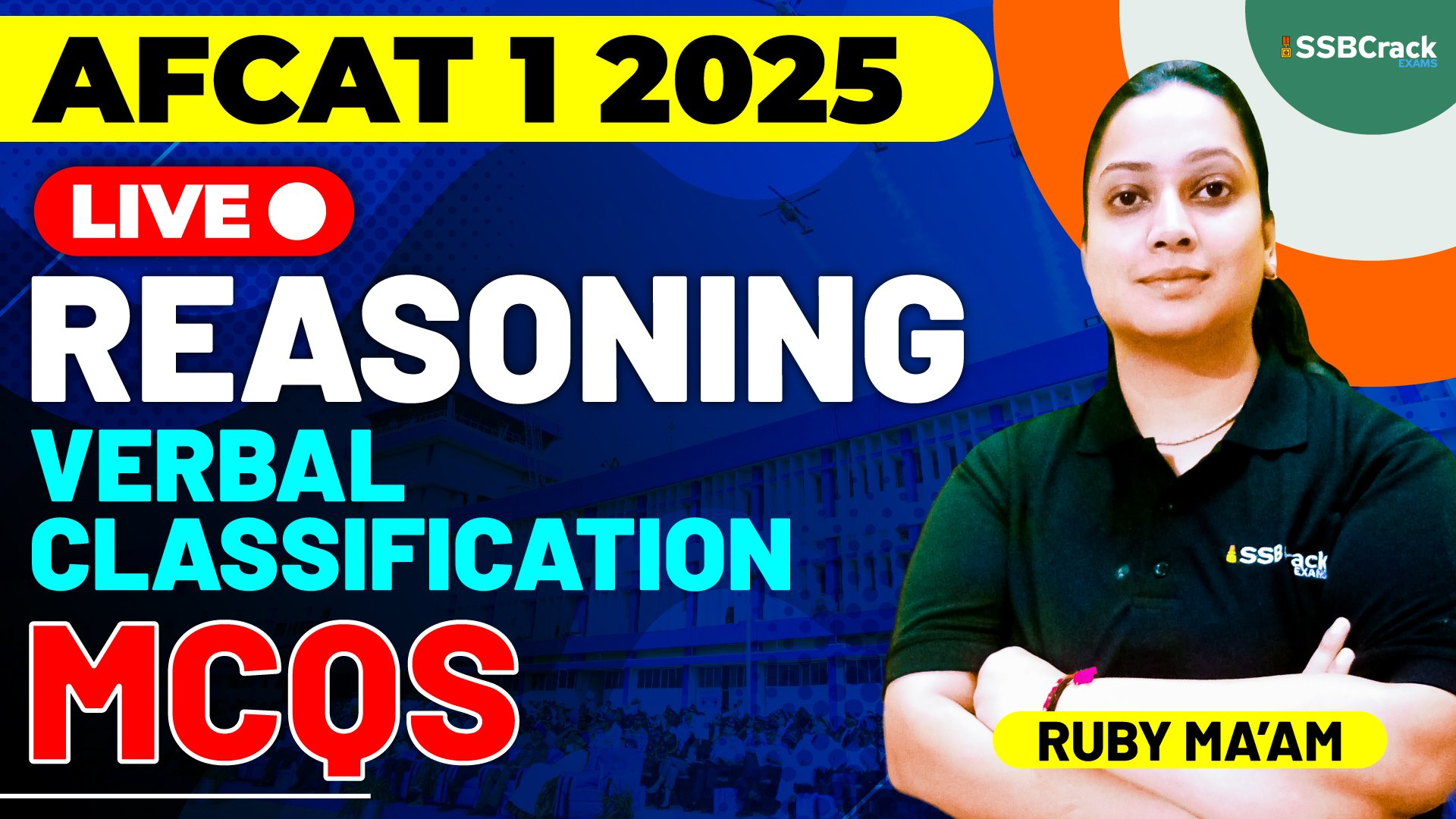The Air Force Common Admission Test (AFCAT) is a highly competitive exam that tests candidates on a variety of subjects, including verbal ability. Among the verbal ability sections, verbal classification holds a significant place due to its role in assessing logical reasoning and language comprehension. This article delves into the importance of verbal classification in AFCAT preparation and how it can be a game-changer for aspirants.
Understanding Verbal Classification
Verbal classification involves grouping words based on shared characteristics or identifying the odd one out. Questions typically present a set of words, and candidates must determine which word does not belong to the group or identify the commonality among them. For instance:
- Example: Apple, Mango, Carrot, Banana
Answer: Carrot (as it is a vegetable, while the others are fruits).
This type of question tests a candidate’s ability to quickly analyze, compare, and categorize information.
Why Is Verbal Classification Important for AFCAT?
- Logical Reasoning Skills: Verbal classification evaluates a candidate’s logical reasoning ability. In the context of the Indian Air Force, logical reasoning is crucial for decision-making, problem-solving, and strategizing in high-pressure situations.
- Language Proficiency: This section indirectly tests language skills, including vocabulary and word associations. A strong grasp of language is vital for effective communication within the Air Force.
- Scoring Potential: Verbal classification questions are generally straightforward and can be answered quickly with practice. This makes them a high-scoring area, which can significantly boost overall AFCAT scores.
- Time Management: Since these questions are less time-consuming compared to other sections, mastering verbal classification allows candidates to allocate more time to complex areas of the exam.
- Attention to Detail: Identifying subtle differences or similarities between words sharpens attention to detail—a skill essential for Air Force personnel who need to analyze situations meticulously.
Tips for Mastering Verbal Classification
- Expand Your Vocabulary: A robust vocabulary helps in understanding word meanings and associations more effectively. Regularly reading newspapers, books, and magazines can aid in this.
- Practice Regularly: Solve as many verbal classification questions as possible to familiarize yourself with different patterns and improve your speed and accuracy.
- Analyze Mistakes: Review incorrect answers to understand where you went wrong. This will help you refine your reasoning skills.
- Use Mnemonics: To remember word categories, use mnemonic devices that create associations in your mind.
- Take Mock Tests: Regularly attempt AFCAT mock tests to get a realistic idea of your performance and identify areas that need improvement.
Conclusion
Verbal classification is more than just a part of the AFCAT syllabus; it is a critical skill that reflects an aspirant’s reasoning, analytical, and linguistic abilities. By mastering this section, candidates not only enhance their exam performance but also develop essential skills that are invaluable in their Air Force careers. Focused preparation, consistent practice, and a strategic approach can help aspirants ace this section and move closer to their dream of serving in the Indian Air Force.







